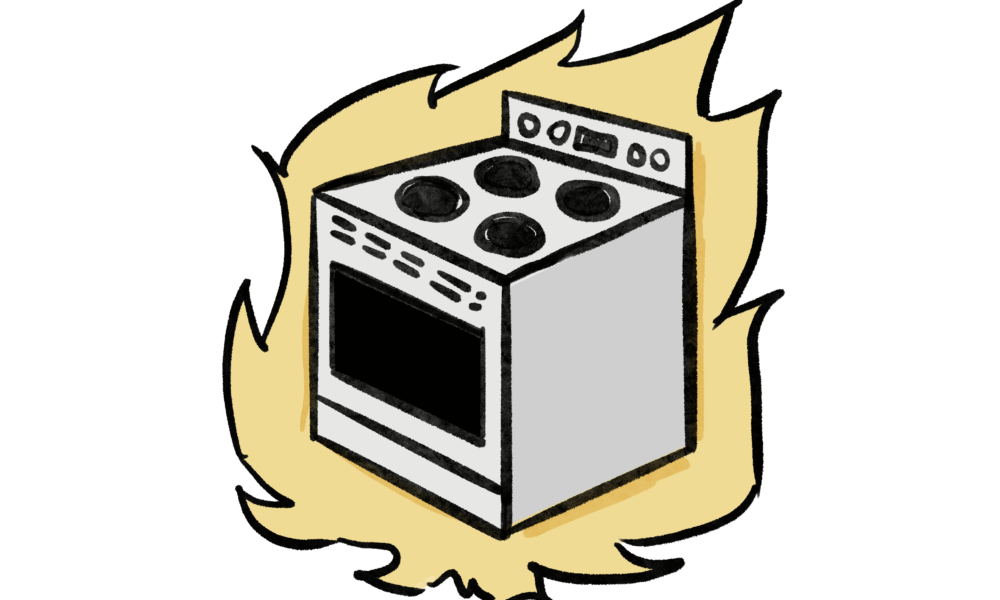The Sims™, a life-simulation video game series created by EA games in 2000, has content aplenty for dedicated players, whether you envision yourself roleplaying different lives or creating your architectural dreams (or nightmares, if that’s your vibe).
But while many of the game’s various traits, hobbies, and interests reflect real life, other aspects set The Sims™ apart. Unlike the game, we can never pause time to stop, think, and plan; we can never reset our choices if an unfortunate, random event occurs. And tragically, there aren’t really any cheat codes to get rich in the real world.
All these concepts provide the Sims™ video game with the our-lives-but-infinitely-better quality. Who wouldn’t want to pretend they live in a world where they can create their dream home on a whim, easily upgrade any skill, or try any career path? For this reason, many find the game relaxing, a brief respite from our busy lives. I, on the other hand, feel incredibly stressed while playing. But why? The game has limited consequences, infinite retries and replays, and all the money and resources in the Sims™ world. It should be the epitome of carefree gameplay.
However, with such limited days with your poor Sim™, the stress to level up begins the day they’re created. Sims™’ lifespans are typically around 130 days from birth to death, but since they are typically adults when you start a new world––and every real second is one in-game minute––this means you only spend about 71 in-game days with your Sim™. Additionally, many great tragedies could befall them and further shorten their lifespans: Cooking fires and electrocutions are but a few of the possible ways your Sim™ could randomly encounter death itself (enter Grim Reaper). Not to mention, maintaining their needs is exhausting when it’s your responsibility to keep all your Sims™ alive (and preferably happy), but this eventually becomes habitual.
When food, housing, money, and basic needs are taken care of, much like in real life, skills and careers become the new focus. With so much money and ability, there should be no excuse not to make your Sim™ the most talented, multifaceted individual they can be. If you had the opportunity to master every skill, experience any job, and attempt any interaction without the worry of anything needing to be permanent, maximizing your game-play efficiency and perfecting your Sim™ feels like the logical thing to do.
But then when you have too many hobbies, unfinished projects get ignored for job promotions. Your Sim™’s artwork on the walls reminds you that they haven’t painted in a week (which, in their case, is three months). A half-written manuscript appears every time you click a Sim™’s computer, and when they play the dusty piano in the corner, their off-beat notes and clumsy playing make it painfully obvious that you’ve neglected this skill (among many others) in exchange for something you deemed more “useful”—perhaps it was a higher handiness level to upgrade any house appliance or a better cooking skill so they stop setting the stove on fire (understandable, honestly).
While this game began as a distraction from everyday life, these aspects start to hit close to home. Your once-captivating hobbies, like art and photography, are now pushed to the side for “more important” things, like your schoolwork or career; unfinished artwork on the floor makes your hands feel like they’ve forgotten how to hold a paintbrush, and they’re too afraid to try. And suddenly, even through the lens of a game where time, money, and resources are supposedly infinite, you’re reminded that even make-believe is limited by the passage of time.
My enthrallment with becoming the best version of my Sim™-self—without the constraints of money, time, and resources—takes away from the main focus of the game: Having the freedom to try anything, and finding happiness while doing so. I, for one, believe that instead of just turning off aging, a natural process in both realities, we should collectively ask EA to make each in-game minute last longer, and allow our Sims™ (and ourselves) to live a little more freely.








